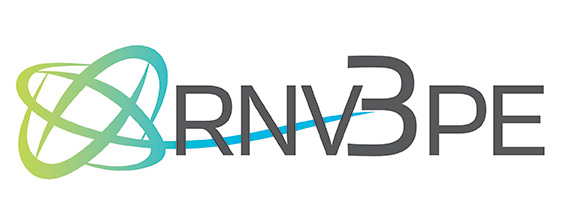
RNV3PE : National Network for Monitoring and Prevention of Occupational and Environmental Diseases (RNV3PE)
What is the RNV3PE?
 The National Network for Monitoring and Prevention of Occupational and Environmental Diseases (RNV3PE) is a grouping made up of experts in occupational and environmental health.
The National Network for Monitoring and Prevention of Occupational and Environmental Diseases (RNV3PE) is a grouping made up of experts in occupational and environmental health.
The network brings together all the regional occupational and environmental disease centres (CRPPEs) in France, whose patient consultation data (on demographics, diseases, exposures, industry sectors, occupations, links between disease and exposure, etc.) are recorded in a shared database: the RNV3PE information system.
Six national partners are involved in the network:
- ANSES, which has run it since 2010
- the French National Health Insurance Fund (CNAM)
- the French Central Fund for the Agricultural Mutual Insurance Scheme (CCMSA)
- the National Research and Safety Institute (INRS)
- Santé Publique France
- the French Society for Occupational Health (SFST)
What are the missions of the RNV3PE?
The main tasks of the RNV3PE are to:
- describe occupational situations involving health risks or disorders with a link to the environment in France
- identify emerging or re-emerging occupational or environmental health risks in France
- improve and harmonise diagnostic practices for diseases related to work and the environment
The RNV3PE also aims to:
- facilitate exchanges between clinicians and other occupational health professionals or professionals working in general environmental health
- help define regional or national priority actions
- guide the authorities' choices in terms of health risk assessment and prevention, and foster research
Around 30,000 consultations recorded each year
New patients make up 78% of the patients seen each year
What are the regional occupational and environmental disease centres (CRPPEs)?
These are centres of expertise in occupational and environmental health. They are located in hospitals, including university hospitals.
Formerly known as occupational disease consultation centres (CCPPs), the CRPPEs were introduced into law by Decree no. 2019-1233 of 26 November 2019.
Their tasks:
- Help investigate the occupational or environmental origin of diseases related to toxic, physical or biological risk factors, or psychological disorders.
- Support patients in their claims for recognition of occupational diseases or for compensation from other bodies, when considered to be justified.
- Initiate and conduct post-occupational monitoring of workers who have been exposed to carcinogenic substances such as asbestos, or for long-term health risks associated with exposure to lead, for example,
- Advise patients with physical or mental health problems on adapting their jobs or retraining. Consultations can also assist the occupational physician in deciding whether a person is fit or unfit for a particular job.
See the list of CRPPEs (in French)
How does the network operate?
The network is coordinated by a dedicated team within the Agency. It leads the network's strategic and operational governance bodies: a Steering Committee and an Operational Unit. A General Meeting is held every two years to bring all the network players together.
ANSES's RNV3PE team is also responsible for scientific leadership of the network, mainly through the coordination of working groups (WG) made up of independent experts: the WG on "Emerging issues", the WG on "Data exploitation methodology & strategy" and the WG on "Occupational psychopathologies".
The aim of these working groups is to detect occupational situations involving health risks at an early stage in order to issue alerts and prevent risks, and to improve knowledge of work-related diseases and/or those related to the general environment by analysing data from the RNV3PE. This knowledge provides input for the risk assessment work carried out within the Agency.